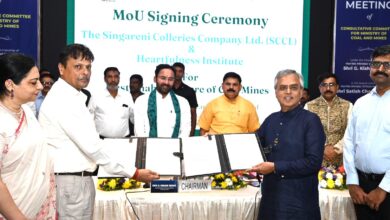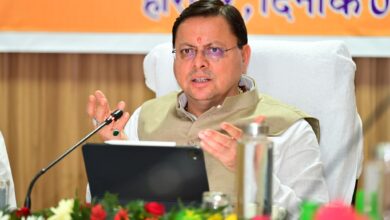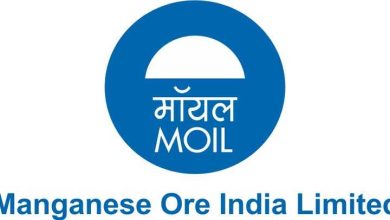CMD, IREDA Urges Proactive Carbon Capture Storage And Sequestration
He was speaking at Energy Asia 2023 CEO Round Table in Bangkok, Thailand

Shri Pradip Kumar Das, Chairman & Managing Director of the Indian Renewable Energy Development Agency Ltd. (IREDA), recently participated in a CEO round table at the Future Energy Asia (FEA) 2023, sponsored by the Asia Natural Gas and Energy Association. During the event, Shri Das emphasized the importance of reducing carbon emissions by decreasing the generation and utilization of power from conventional sources.
Shri Das highlighted India’s impressive progress in the renewable energy sector, surpassing the global average growth rate. He attributed this achievement to the significant contributions made by IREDA. He also mentioned that despite having the world’s largest population, India’s per capita energy consumption and carbon emission intensity are lower than the global average and those of other developed nations.
Shri Das noted that India has already achieved its earlier targets of having a 40% share of power generation from non-fossil fuel sources ahead of schedule. The Government of India has already established targets, schemes, and policies for emission reductions by 2030. India aims to reduce the emissions intensity of its GDP by 45% by 2030, based on the 2005 level, and achieve approximately 50% cumulative installed capacity of non-fossil fuel-based energy resources by 2030.
India has been actively engaging in discussions regarding renewable energy transactions with other Asian countries like Bhutan, Nepal, Myanmar, and Bangladesh. It has also signed several Memoranda of Understanding (MoUs) to promote renewable energy growth and maximize the utilization of available resources and energy consumption.
Shri Das highlighted that India’s installed non-fossil fuel capacity has increased by 396% in the past 8.5 years. Additionally, the installed solar energy capacity has grown by 24.4 times in the last 9 years. He emphasized the need for cohesive and holistic efforts at all levels in the value chain to ensure optimal execution and utilization of Carbon Capture Storage and Sequestration (CCSS) on a global scale, aligning with India’s One Sun One World One Grid initiative.
According to Shri Das, achieving optimal CCSS requires a comprehensive awareness program targeting power consumers and citizens, as well as timely capacity building of stakeholders across the entire value chain. He emphasized the importance of establishing effective policies at the right time and in the right manner to ensure the successful implementation of CCSS, which would yield the desired results.
The round table was attended by senior representatives from the Ministry of Energy, Kingdom of Thailand, CEOs, and heads of various international organizations from the energy sector. Discussions focused on the financial, economic, and operational challenges faced by Carbon Capture, Utilization, and Storage (CCUS) projects, including the high costs associated with carbon capture.




